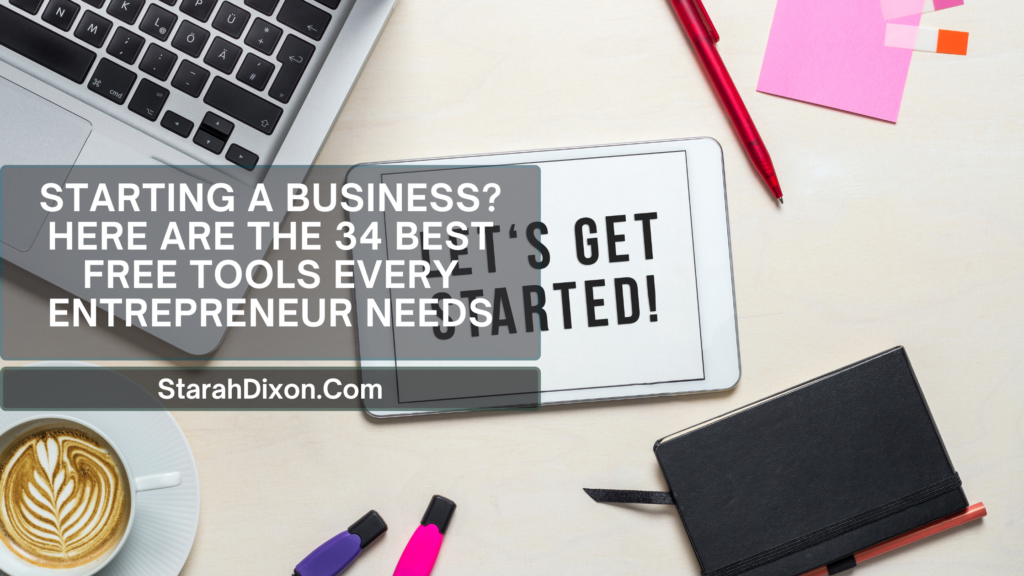Starting a business is exciting, but before you invest too much time and money, you need to validate your idea—essentially proving that there’s a demand for your product or service. The good news? There are multiple ways to do this depending on your business type, and I’ll walk you through strategies for product-based businesses, service businesses, and businesses that blend both. Plus, I’ll share some general validation techniques that work across the board.
Validating a Product-Based Business
(Product businesses include physical goods, digital downloads, software, etc.)
- Become a Vendor at Events: If you sell a physical product, try setting up at local markets, pop-ups, or industry trade shows. This gives you real-time feedback and helps gauge interest.
- List on Product Discovery Platforms: Platforms like Product Hunt or Appsumo (for tech products) or Steam (for games) help you see if your product resonates with early adopters.
- Offer Preorders or Crowdfunding: Launch a Kickstarter or Indiegogo campaign to test demand before production.
- Sell Small Batches First: Instead of manufacturing in bulk, use print-on-demand or small-batch production.
- Utilize Online Marketplaces: Try Etsy, Amazon, Faire (for wholesale), or Gumroad for digital products to see what gains traction.
- Leverage Social Media & Ads: Run small-scale Facebook/Instagram ads to test demand before scaling.
- Sell in Your TikTok Shop: TikTok has become a powerful e-commerce platform, allowing brands to showcase and sell products directly to engaged audiences.
Examples of Product-Based Businesses:
- A custom candle-making brand
- A subscription box for pet owners
- A new app for budgeting
- A print-on-demand t-shirt shop
- A handmade jewelry business
Validating a Service-Based Business
(Service businesses include consulting, coaching, freelancing, agency work, etc.)
- Talk to People Already in the Space: If you’re new to an industry, have conversations with professionals to learn the gaps and pain points.
- Offer Free or Discounted Services First: While I don’t fully believe in giving things away for free, if you choose to do this, limit the number of people you offer it to—maybe your first three. Let them know it’s in exchange for feedback, and do your best to get this guarantee. Free can sometimes lead to people undervaluing your service, and it also prevents people from making multiple accounts to take advantage of trials.
- Join Industry-Specific Communities: Online communities like Reddit, Facebook Groups, Indie Hackers, LinkedIn Groups, or niche Slack channels can provide real-world insights.
- Go Where Your Ideal Clients Are: Attend networking events, industry expos, or meetups (just like I used to source at job fairs when I was starting HealthHires—shhh, not saying you should, just saying I did it!).
- Freelancing Platforms & Job Boards: List yourself on Upwork, Fiverr, Clutch, Toptal, or PeoplePerHour to test demand for your expertise.
- Offer Workshops & Webinars: A great way to test interest and collect emails.
Examples of Service-Based Businesses:
- Social media management agency
- Career coaching business
- Virtual assistant services
- Web design consulting
- Private chef services
Validating Hybrid Businesses (Products + Services)
(Some businesses offer both physical/digital products and services—like an online course creator who also does coaching.)
- Sell an MVP (Minimal Viable Product): Before going all-in, create a lightweight version of your service or product. Example: If you plan to create a full-scale fitness app, start with a simple Notion template or a PDF workout guide.
- Beta Test With Small Groups: Before launching an online course, run a free or low-cost webinar to see if people are engaged.
- Partner With Influencers or Affiliates: Get people to try and review your product or service to gauge demand.
Examples of Hybrid Businesses:
- A nutritionist who sells meal plans + offers coaching
- A personal trainer who sells fitness programs + virtual training
- A marketing agency that offers services + sells online branding courses
Validation Methods That Work for Any Business Type
- Ask the Right Questions in Online Communities: Instead of just promoting, ask strategic feeler questions in forums like Reddit, Quora, Twitter, or industry-specific Facebook Groups. This helps you understand how people talk about problems your business could solve.
- Test Demand With a Simple Landing Page: Before fully launching, create a website with a waitlist sign-up and run small ads to see if people are interested.
- Networking & Referrals: Leverage your existing network to introduce you to potential customers.
- Competitor Research: See what similar businesses are doing and identify gaps.
- Surveys & Polls: Use Google Forms, Typeform, or even Instagram polls to gather insights.
- Join Incubators or Accelerator Programs: These provide funding, mentorship, and validation through structured feedback.
Final Thoughts: Be Intentional With Validation
Validating your business is about gathering real-world data before committing big resources. The key is to stay open to feedback and be strategic in how you approach it. Not every opportunity will seem obvious—sometimes, an event or online discussion can unexpectedly shift your perspective (if it aligns with your vision).
The best thing you can do is test, tweak, and pivot as needed before going all in.
Need help finding business growth opportunities? Check out my [Resources Directory] for a list of in-person and virtual opportunities to help validate and grow your business.



